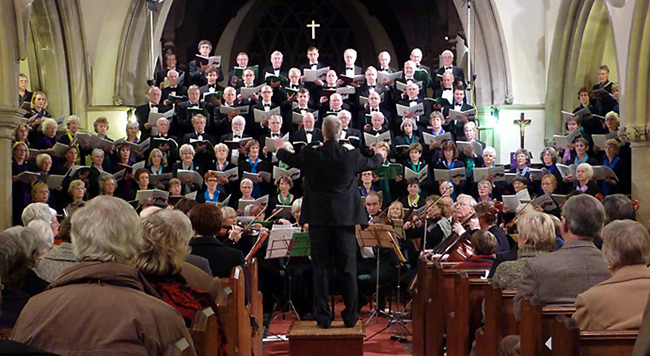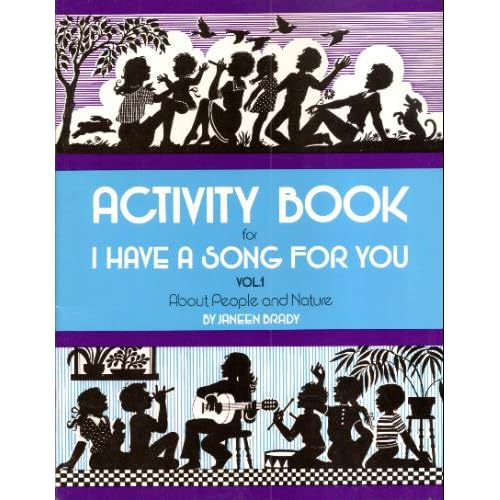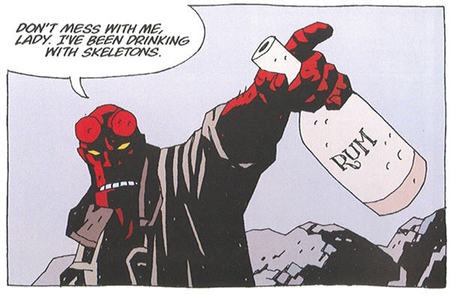
Glen Gould in his interview of himself published in High Fidelity magazine in 1974 makes the following comment (g.g. is the imaginary interviewer, G.G. is the Glen Gould persona, both were created by Glen Gould):

*****
g. g. : Mr. Gould, I don’t feel we should allow this dialogue to degenerate into idle banter. It’s obvious that you’ve never savoured the joys of a one – to – one relationship with a listener.
G. G. : I always thought that, managerially speaking, a twenty – eight – hundred – to – one relationship was the concert – hall ideal.
g. g. : I don’t want to split statistics with you. I’ve tried to pose the question with all candour, and –
G. G. : Well then, I’ll try to answer likewise. It seems to me that if we’re going to get waylaid by the numbers game, I’ll have to plump for a zero – to – one relationship as between audience and artist, and that’s where the moral objection comes in.
g. g. : I’m afraid I don’t quite grasp that point, Mr. Gould. Do you want to run it through again?
G. G. : I simply feel that the artist should be granted, both for his sake and for that of his public – and let me get on record right now the fact that I’m not at all happy with words like “public” and “artist”; I’m not happy with the hierarchical implications of that kind of terminology – that lie should be granted anonymity. He should be permitted to operate in secret, as it were, unconcerned with – or, better still, unaware of – the presumed demands of the marketplace – which demands, given sufficient indifference on the part of a sufficient number of artists, will simply disappear. And given their disappearance, the artist will then abandon his false sense of “public” responsibility, and his “public” will relinquish its role of servile dependency.
*****

Thus “zero – to – one” may describe the isolation one has when listening to a recording. The creator’s active role accomplished prior to the listening is thus reduced to no role at all. Where recordings are concerned the only living actor is the listener.
This is important because we all access music via recordings. It could easily out weigh any other means of accessing music for most people and possibly most musicians.

In contrast Christopher Small maintained that music was a social transaction. Relationships in all their messiness was what music was about for him.

Music is an activity.

Small questioned the idea of repeated listenings to music when the music is understood as a story. He likened symphonies to novels.
The first hearing (and reading) is often the most engaging. In subsequent hearings and readings the bare bones of structure and form may emerge. These concepts might be important to the crafts person who might be interested in creating such stories, but they are different from experiencing the story.

But what of repeated experiences that begin to take on a comforting familiarity. This is more in the realm of ritual. Christopher Small was also very interested in ritual. He asked questions about the ritual of public performance in the classical music world of his time (late 20th century). He saw it as moving away from human meaning and experience. In that he was surely correct.

For me the idea of music encompasses all of this: isolated listening to recordings, participation in live performances and, of course, ritual.

When a poem, story or song becomes so familiar we can “sing along” and take comfort in what is coming next, it seems to me that we are experiencing that security that ritual can provide.
When we are disturbed from our complacency to new insights by such experiences whether initial or repeated again I think that ritual can still be seen as in effect. This blast of light and insight relies on the conventions of ritual expectation but also provides the wonderful experience of “aha” or deep emotional response.

It can occur in music in any of the experiences mentioned above (listening to a recording, experiencing live music for the first time or for repeated experiences).


*****
Wringing out a washcloth in space
I think the astronaut in the video is the same guy who performed on guitar from outer space with earth musicians live remote recently.
*****
Top U.N. Rights Official Denounces Iraqi Executions – NYTimes.com
When the state kills, evil is in the room. Just my opinion.
*****
Is China Changing Its Position on Nuclear Weapons? – NYTimes.com
Yikes. China reserves first strike options at least in its rhetoric.
*****